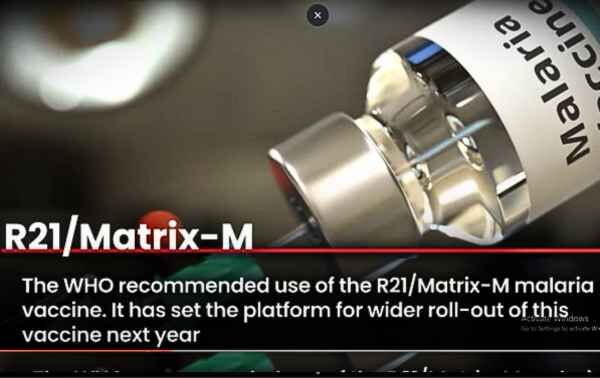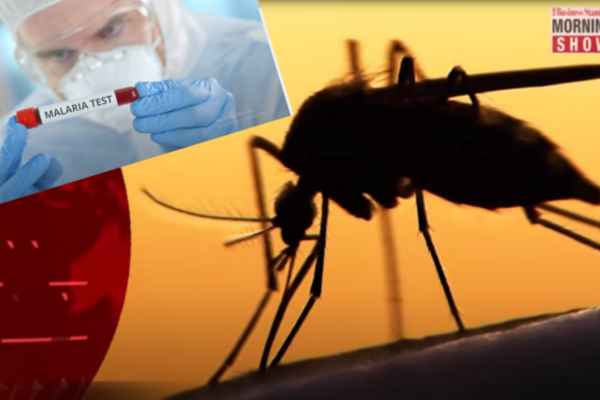In a monumental stride towards global health, the World Health Organization (WHO) has recommended a second malaria vaccine,
R21/Matrix-M, for children in Africa. This recommendation comes as a result of advice from the WHO Strategic Advisory Group of Experts on Immunization (SAGE) and the Malaria Policy Advisory Group (MPAG). Following WHO’s endorsement, this Malaria Vaccine is poised to become a powerful tool in the battle against malaria, a disease that inflicts a devastating toll on children across the African continent.
The Epidemic and the Need for Vaccines Second Malaria Vaccine
Malaria continues to cast a long shadow over the African continent, where nearly half a million children succumb to this mosquito-borne disease annually. In 2021 alone, there were approximately 247 million reported cases of malaria, resulting in a heartbreaking 619,000 deaths. The staggering statistics underscore the urgent necessity for effective vaccines, particularly for children under the age of five, who bear the brunt of this scourge.
R21/Matrix-M: A Second Line of Defense Second Malaria Vaccine

The recommendation of the R21/Matrix-M vaccine by the WHO marks a significant milestone in the quest for a malaria-free world. This vaccine, designed to protect vulnerable children, complements the first malaria vaccine, RTS,S, which received WHO approval in 2021. Both vaccines have demonstrated their safety and efficacy in preventing malaria in children, promising to deliver substantial public health benefits.
Addressing the Unprecedented Demand Second Malaria Vaccine
The demand for malaria vaccines has never been greater. However, the supply of RTS,S remains limited. Adding R21/Matrix-M to the WHO’s recommended malaria vaccines list should close this crucial vaccine availability gap. This step could expand vaccine coverage to all children in malaria-endemic regions, a vital move against this lethal disease.
High Efficacy and Impact
The R21/Matrix-M vaccine has shown exceptional efficacy when administered before the high malaria transmission season. In regions with highly seasonal malaria transmission, where outbreaks are confined to four or five months each year, this vaccine has demonstrated a remarkable 75% reduction in symptomatic malaria cases during the 12 months following a three-dose series. Administering a fourth dose a year later maintains this high level of protection. This efficacy is comparable to that of RTS,S when given seasonally, making it a formidable addition to the arsenal against malaria.
Cost-Effective and Life-Saving
Moreover, the cost-effectiveness of the R21/Matrix-M vaccine is a compelling aspect of its implementation. Priced at just US$2-4 per dose, it aligns with other recommended malaria interventions and childhood vaccines. This affordability, combined with its impressive efficacy, positions the vaccine as a vital tool in reducing malaria’s devastating impact on children in Africa.
A Strong Arsenal Against Malaria
The availability of both R21/Matrix-M and RTS,S vaccines offers a two-pronged approach to combat malaria. While these vaccines have not been directly compared in clinical trials, they each play a pivotal role in malaria prevention, catering to different programmatic needs, vaccine supply, and affordability.
The Path Forward
The next steps for the R21/Matrix-M vaccine involve completing the ongoing WHO prequalification process, enabling international procurement for broader distribution. As many as 28 African countries have plans to introduce WHO-recommended malaria vaccines as part of their national immunization programs. With support from Gavi, the Vaccine Alliance, which has approved technical and financial aid for malaria vaccine rollout in 18 countries, these vaccines are expected to make a significant impact on malaria control efforts.
A Vision of a Malaria-Free World
Dr. Matshidiso Moeti, WHO Regional Director for Africa, emphasizes the importance of this recommendation for the continent. She asserts that the addition of R21/Matrix-M holds the potential to close the daunting demand-and-supply gap, offering hope in the battle against malaria. Delivered at scale and embraced widely, these two vaccines have the capacity to strengthen malaria prevention, save countless young lives, and bring us closer to a world free from this deadly disease.




